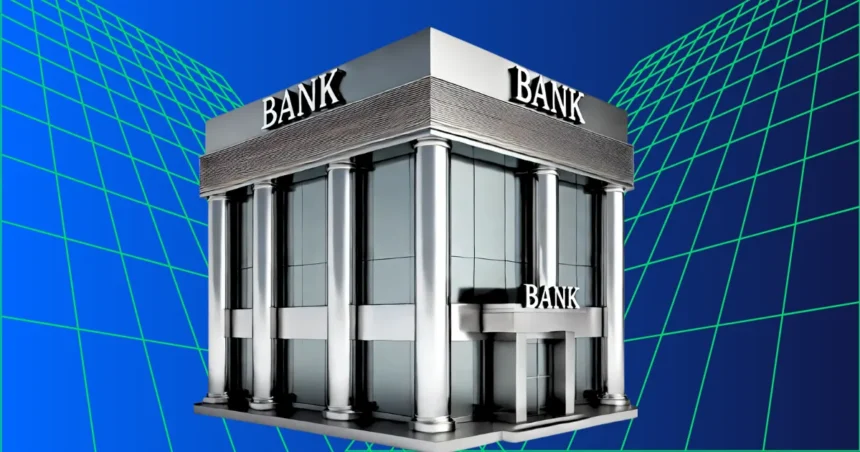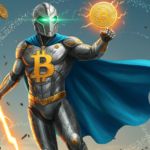The post Think You Own Your Money? Why Non-Custodial Banking Is the Future of Finance appeared first on Coinpedia Fintech News
Imagine waking up one day to discover that your bank has frozen your account. No explanations, no apologies, and no warnings. You can’t access your own money. Think this is unrealistic? Think again. This is exactly what happened to thousands of Silicon Valley Bank customers last year, when the bank collapsed overnight. It was a downright shocking and gut-wrenching reminder of the risks of custodial banking and centralized finance.
Custodial banking is the type of banking that we all know – places that hold and manage your money. The moment you deposit funds, you don’t just give them your currency, you give them control, and with that, they have the power to restrict your access, block transactions, and in some cases, lose your funds due to institutional mismanagement.
You deserve a better system.
The Risks of Custodial Banking
Where to start. The banks can arbitrarily do pretty much whatever they like, such as freezing your account, causing you anything from a minor inconvenience to severe financial distress. There have been instances where a husband has died and the bank has frozen his joint-access accounts, locking his bereaved wife out at an excruciating time.
On top of that, custodial banks own all of your private financial data, which they routinely lose. Now, of course, accidents happen, but banks and their outdated security infrastructure have become perfect targets for cybercriminals and career hackers, who know that this compromised data is worth a small fortune.
It’s not only banks’ data security practices that are weak, so are their antiquated policies, which see them prioritize excessive profits over customers’ best interests. This translates into exorbitant overdraft, loan, and mortgage fees, or poor interest rates on customer savings (while the bankers’ bonuses keep growing). At the same time, a lack of banking transparency means that your funds could be used for risky investments or speculative trading without your knowledge or consent. That is exactly what Silicon Valley Bank did to cripple themselves and lose $1.8bn of customer funds that were entrusted to them.
We only have to go back a little further, to the 2008 financial crisis, a terrifying case study that allows us to point our fingers directly at the banks and identify how their reckless behaviour led to devastating consequences for the whole world. Millions of people suffered directly, with many entrusting their life savings with bankers who were more competent at financial mismanagement and fraud than doing their actual jobs. Everyone else suffered through recessions, stagnant wage growth, high debts and unemployment, home foreclosures, an increased cost of living, and more.
In 2023, it was found that bankers’ bonuses have more than doubled since 2008. They’re no longer working for us at all.
What Is Non-Custodial Banking and Why Is It the Solution?
Non-custodial banking means taking full control of your own funds without any reliance on third-party institutions, like banks and building societies. Once upon a time, this meant stuffing cash under the mattress, but these days, we’re talking about decentralized finance (DeFi) and blockchain technology.
You hold your money in a way that nobody else can touch it. You hold the keys, and only you. With non-custodial banking, the combination of digital wallets, private keys, and smart contracts provide you with complete ownership and control of your assets. No more arbitrary freezes. No more data theft. No more restrictions. In addition, you have enhanced privacy and security, thanks to advanced cryptographic encryption and distributed ledger technology.
Beyond improved security and control over your funds, there are other, less obvious advantages to non-custodial banking. One is that you’re no longer exposed to the same dangers of data loss, damage, or access complications as regular banking customers. Natural disasters, fires, and extreme weather have all led to major data loss over the years, not just for paper records, but for digital data too – not to mention service outages.
The Rise of Deobanks: A Self-Sovereign Alternative
A new generation of financial technologies is now noisily disrupting the traditional banking industry, with WeFi leading the charge. As the first “Deobank”, WeFi represents a novel class of decentralized on-chain banks that are built on blockchain rails. Unlike traditional banks, and even Neobanks (which are still 100% custodial), Deobanks like WeFi provide decentralized and transparent financial services to their users, while still empowering them to retain full control of their non-custodial accounts.
It’s the best of both worlds, as WeFi offers non-custodial banking services with additional features, made possible by their smart contract-based accounts. WeFi’s account holders can spend using digital cards and smart wallet transactions, without ever handing over control of their funds to an intermediary. The transparent nature of the blockchain ensures full accountability without compromising user privacy.
Everyone can benefit from non-custodial banking using services like WeFi, but one of the earliest case studies and beneficiaries of technology of this nature are overseas workers making remittances. For years, sending money from one country to another has seen sky-high wire fees charged to some of the world’s poorest people. This needed to be stopped, and blockchain technology made it possible. Whether sending $1 or $1,000,000, the blockchain network fee is the same. That’s financial democratization in real-time, smashing down borders and the middlemen who prop them up.
Non-Custodial Banking Is Not Just a Trend
The rise of non-custodial banking is not a passing trend, it’s a fundamental shift in how modern humans, especially those who have grown up with technology, think about money and finance. In a world where applications, emerging tech, and alternative narratives dominate the digital world, banking has been able to avoid a major disruption for far too long. However, the rise of Bitcoin and other cryptocurrencies (especially stablecoins) now represents a multi-trillion dollar industry that proves people don’t necessarily want to put their financial assets into a bank.
Financial freedom, privacy, and personal control have always been important, but perhaps the flexibility afforded by technology has shown people that they not only deserve better options, but can access them immediately.
Deobanks like WeFi have the transformative potential to lead us into an era with more secure, trustworthy, and equitable financial management options, far from the grabbing hands of corporate gatekeepers, predatory middlemen, and bonus-focused, self-serving bankers.
Human-centric finance will put people back in control of their money.




